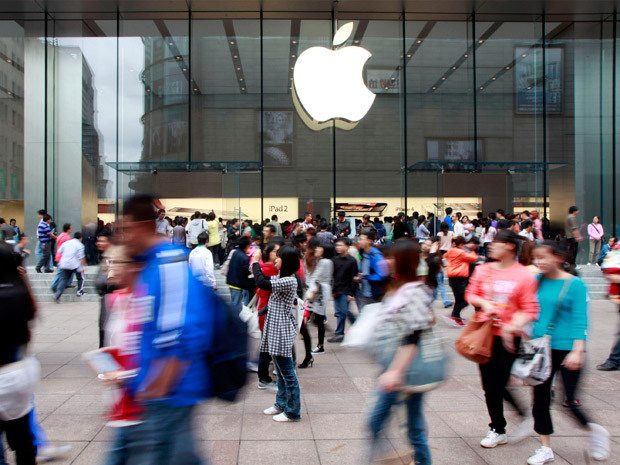All the press coverage around Apple’s event has included the obvious territory: the specs and sizes of the new products, etc. I’m less interested in covering the same ground. One of the points most interesting to me was how clearly Apple is focused on a “mobile-first” world.
What is mobile first? Mobile first means that, instead of the pre-2010 idea of using a desktop Web page as a starting point for conceiving the mobile app, developers should conceive of and design the mobile app first, and only then consider if they even wanted to have a desktop interface. The idea being that while some people have a full computer and they are in front of it some of the time, everybody has a smartphone and they have it with them all the time. Why not address that wider user base?
If you want to think of some mobile-first apps you probably know, it’s easy. Consider whether you’ve tried these apps on your phone, then think if you’ve ever tried the desktop version: Angry Birds, Uber, Waze or Snapchat. Nope, just mobile. Other apps, like Pandora and Yelp, have both mobile and desktop versions, but most usage is from mobile. Some, like Adobe design tools and Excel remain mostly desktop applications … but that too may change. Mobile devices have decimated computer sales, prompting many to predict a “post-PC-world.”
To exemplify the shift, Yelp’s first mobile apps were exclusively used to search for a restaurant and read reviews – content consumption. Yelp originally didn’t even enable review creation on the mobile app, since nobody then wanted to type into a phone. But times have changed, and most Yelp reviews are now posted from mobile devices.
As more people got smartphones, the average user increasingly relied on the smartphone or tablet to be the “go-to” device. Some users don’t even own computers anymore. People are turning to mobile devices for not only the classic quick glimpse of information, but also longer content consumption sessions, for data entry, even for content creation or for whatever’s next. Mobile first means building software for these mobile users first, even before desktop users. And Apple’s moves are about building hardware and a mobile operating system to facilitate that.
Apple is seeking to remove certain legacy barriers of mobile devices. The 2015 smartphone is still based on the old mobile model, where users just wanted to sip data and consume, but not create. This has constrained mobile-first developers. Finger input is crude, as are software keyboards, and the lack of real estate and context menus limits options. Whereas the ample real estate in a desktop Web page means designers can offer a lot of options, navigation, banners and content on a single page, while mobile platforms forced a “design avarice.”
Which brings us back to Apple. What are 3D touch, the iPad’s Pencil and the keyboard really all about? They are all about replacing avarice with options. No, Apple isn’t the first with any of these ideas. They’re borrowing heartily from Samsung, Wacom, Microsoft and dozens of other accessory makers. Heck, 3D Touch looks a lot like a right-click on a Windows mouse. But because of fragmentation in Android devices and the low penetration of Microsoft tablets, the Note or the Surface didn’t really cause a shift in how mobile devices are used. But with Apple taking the plunge, developers will see and seize the new options and double-down on new usage models for mobile devices. Apple’s intentions here are clear, judging by the presence of Microsoft Office and Adobe design software at the launch event. This iPad is not just for entertaining your 5-year-old at dinner.
Many remember that Steve Jobs hated the stylus. But he hated it in 2007. He was brilliant, but he wasn’t omniscient. A lot has changed in eight years. Jobs hated app stores in 2007, too … until he loved them about a year later.
Innovative content companies and developers have been boldly leading us to a mobile-first world for about five years, and it’s about time the hardware and OS stopped being the limiting factor and started being an enabler instead. When most people criticized Apple’s ho-hum copycat improvements to its products, I saw Apple taking the bet on “mobile-first development” and upping the ante with “mobile-first hardware.” USA Today said “Apple isn’t reinventing the world anymore.” I think they just did.
Derek Kerton, principal analyst and head of the strategy practice at Kerton Group, has 16 years experience in alliances, business development, management, strategy and implementation across software, infrastructure, applications and content for consumer and enterprise users. This distinguished experience combined with a Cornell MBA and profound knowledge of the market, and his relationships with key players in the telecom space have proven to be a valuable tool to many of his clients. With internationally recognized expertise in relating communications technology to real business, Kerton is equipped to assist any telecommunications organization toward their strategic goals.
Editor’s Note: Welcome to Analyst Angle. We’ve collected a group of the industry’s leading analysts to give their outlook on the hot topics in the wireless industry.


